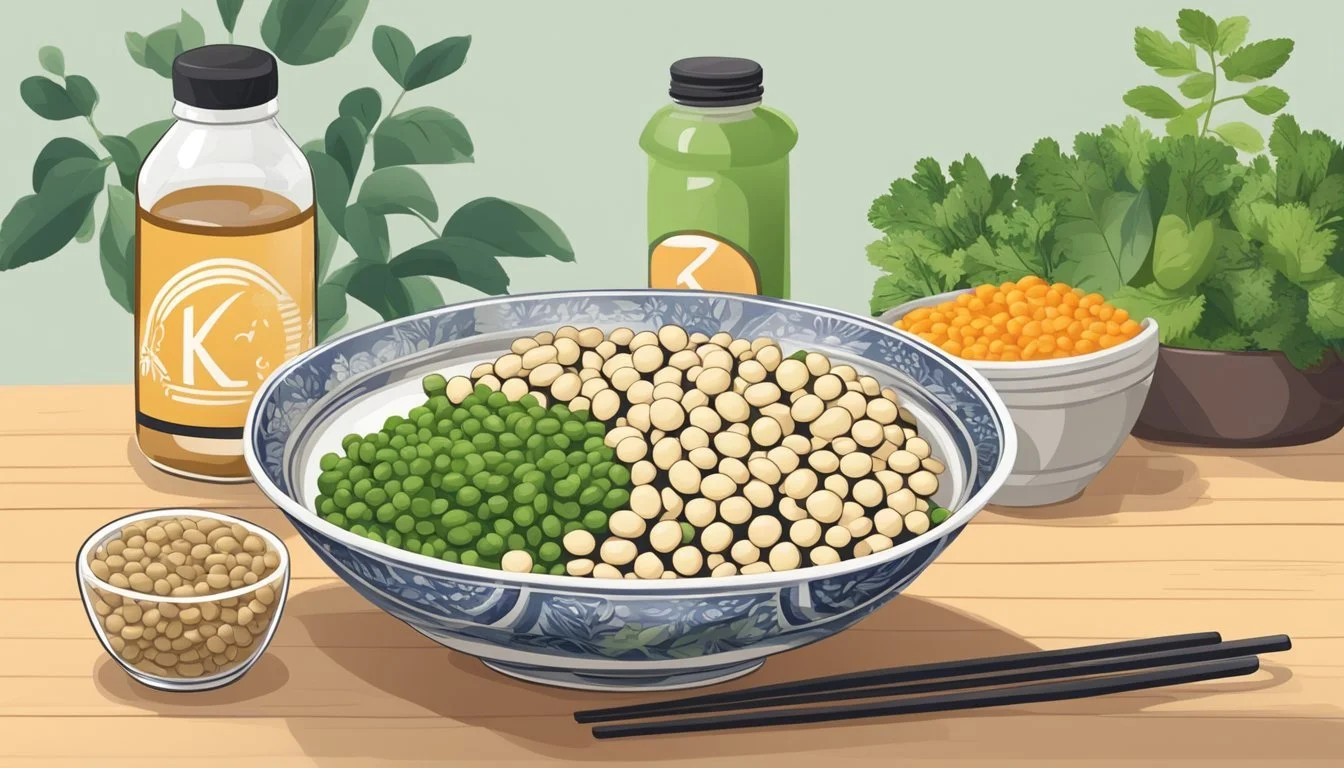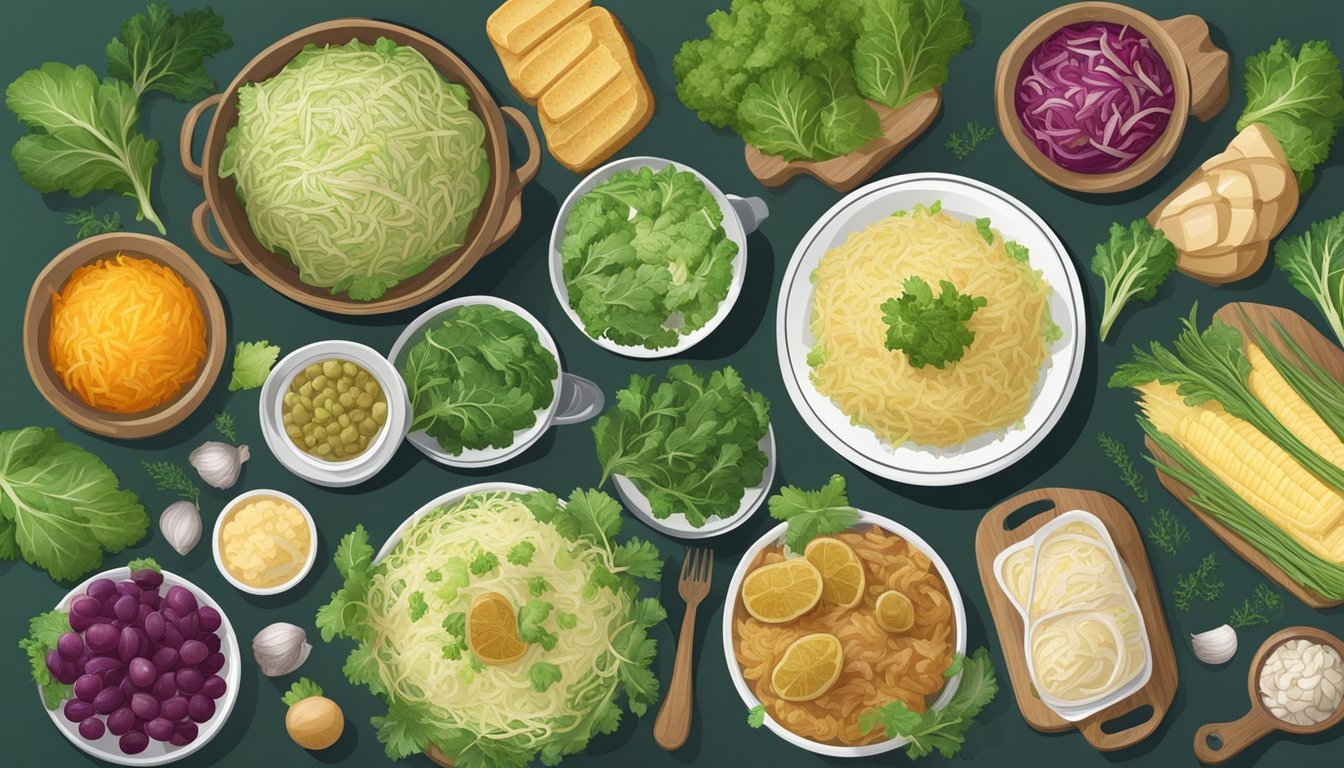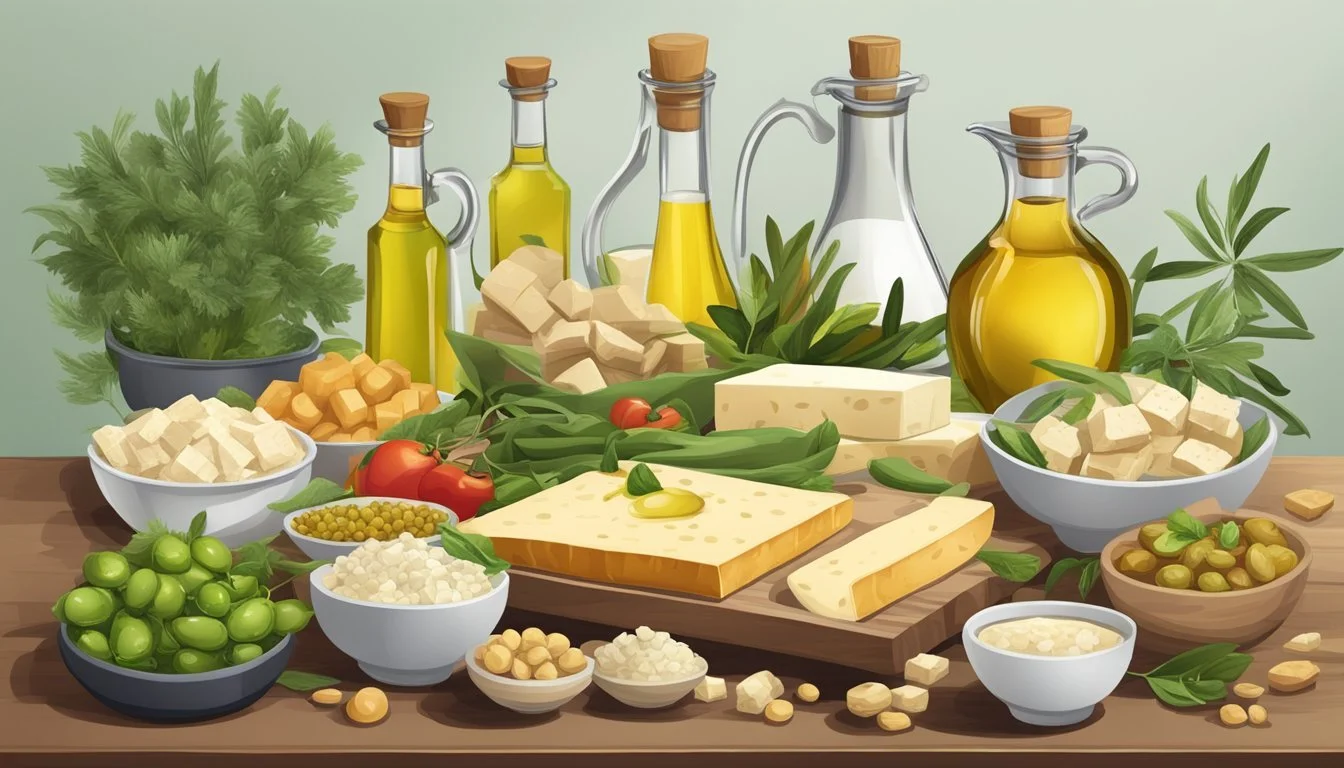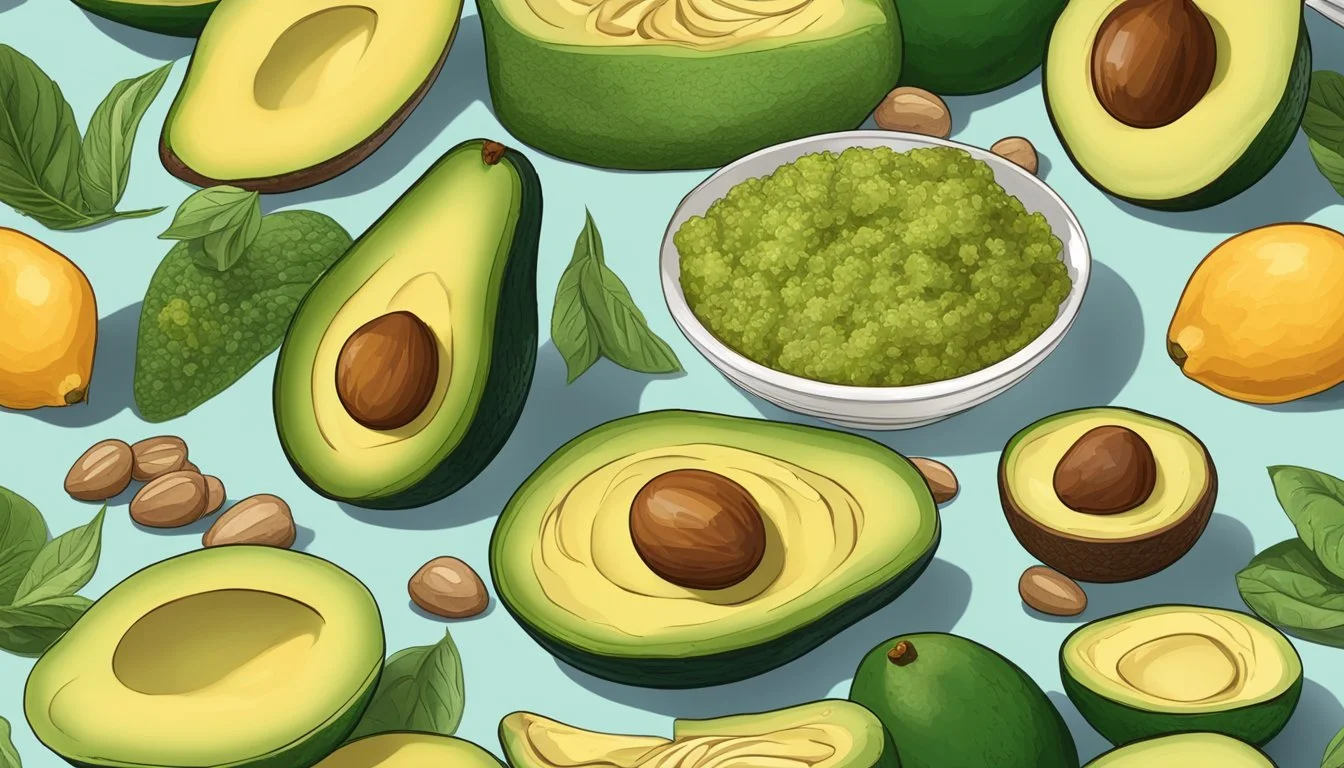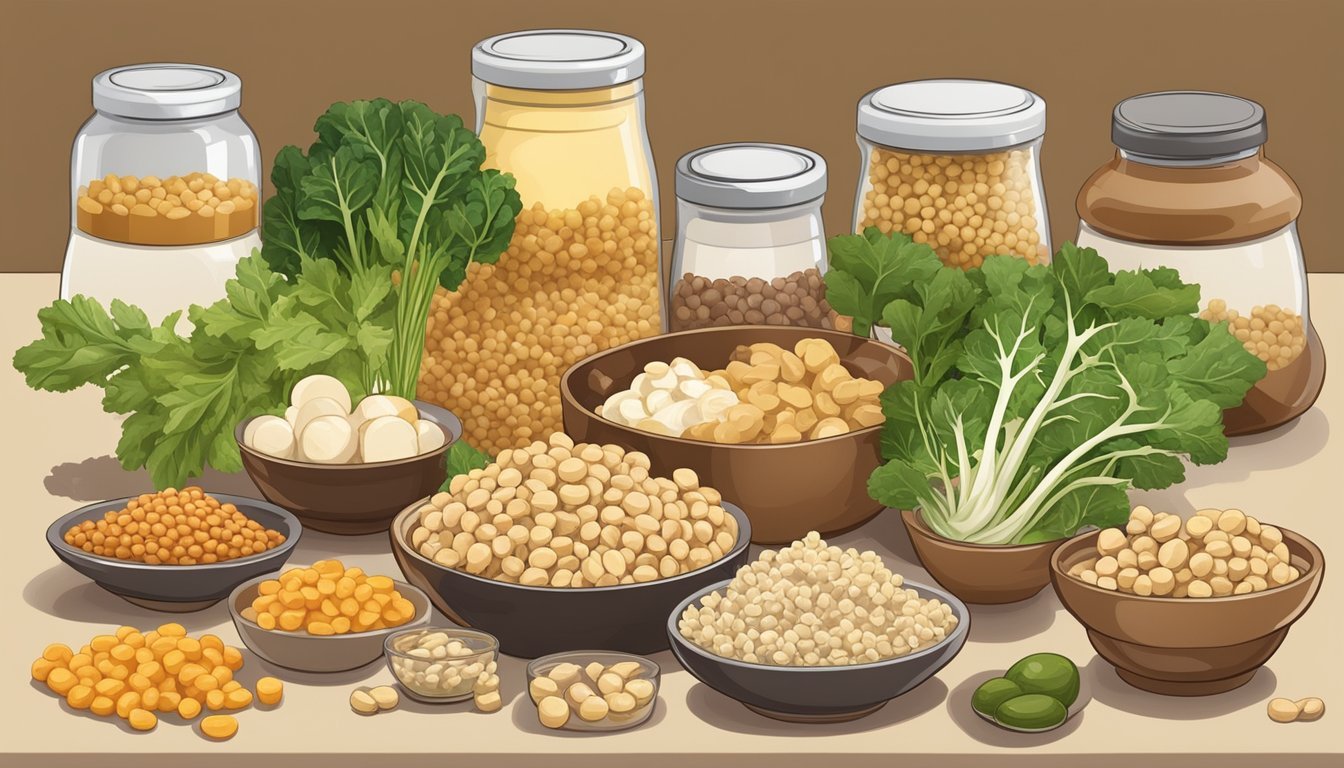Vegan Sources of Vitamin K2
Top Sources and Benefits
A well-rounded vegan diet often seeks to include all essential nutrients for optimal health, and vitamin K2 is no exception. While animal-based foods are commonly known sources of vitamin K2, vegans can still meet their nutritional needs with careful planning and selection of plant-based foods. Incorporating vegan sources of vitamin K2 plays a vital role in supporting bone health, blood clotting, and cardiovascular health.
Achieving adequate intake of vitamin K2 on a vegan diet may seem challenging, but several plant-based options are rich in this nutrient. Understanding these sources can help vegans maintain balanced nutrition and promote overall well-being.
1) Natto
Natto, a traditional Japanese food, is made from fermented soybeans. It is renowned for being one of the richest sources of vitamin K2, specifically in the form of menaquinone-7 (MK-7). A 3.5-ounce (100-gram) serving of natto provides approximately 850-1000 micrograms of vitamin K2.
Fermentation contributes to natto's high vitamin K2 content. The process involves the use of Bacillus subtilis bacteria, which enhances the nutritional profile of the soybeans.
In addition to its vitamin K2 content, natto is also noted for its distinct, somewhat pungent flavor and sticky, stringy texture. It is often consumed as a breakfast food in Japan, typically served over rice.
For vegans seeking to increase their vitamin K2 intake, natto stands out as an exceptional choice. Including this fermented soy product in a plant-based diet can help address potential deficiencies in vitamin K2.
2) Sauerkraut
Sauerkraut, a type of fermented cabbage, is a notable vegan source of vitamin K2. The fermentation process enhances its nutrient profile, including the production of vitamin K2 in the form of menaquinone-7 (MK-7).
Incorporating sauerkraut into a vegan diet can contribute to meeting the recommended intake of vitamin K2. This fermented food is easy to add to various dishes, such as salads and sandwiches.
It's important to choose unpasteurized sauerkraut to ensure it retains its beneficial bacteria and nutrients. Pasteurization can destroy the bacteria responsible for producing vitamin K2.
Sauerkraut can be found in many grocery stores, particularly in the refrigerated section. It can also be made at home with minimal ingredients, offering a fresh and customizable option.
For vegans looking to increase their vitamin K2 intake, sauerkraut stands out as a practical and nutritious choice.
3) Miso
Miso, a traditional Asian food, is made from fermented soybeans and is packed with umami flavor.
This fermented paste is not only a versatile ingredient in many dishes but also a notable source of vitamin K2.
Vitamin K2 in miso is produced during the fermentation process, making it beneficial for those on a vegan diet.
Incorporating miso into meals can be simple and delicious.
It can be used in soups, dressings, and sauces, adding a savory depth to various recipes.
While miso may not provide as much vitamin K2 as natto, it still offers a significant amount, especially in the MK-7 form.
Regular consumption of miso can help vegans ensure they are getting essential nutrients like vitamin K2.
4) Tempeh
Tempeh is a traditional Indonesian food made from fermented soybeans. It is celebrated in vegan diets for its high protein content and rich textures.
One of the key benefits of tempeh is that it contains vitamin K2, specifically in the form known as MK-7. This vitamin is crucial for bone health, helping to activate proteins that bind calcium to bones.
The fermentation process involved in making tempeh is what allows soybeans to produce vitamin K2. This process enhances the nutritional profile, making tempeh a valuable addition to a plant-based diet.
Tempeh is versatile in the kitchen. It can be stir-fried, grilled, or even added to salads. With its slight nutty flavor and dense texture, it serves as a satisfying meat substitute while providing important nutrients.
For those seeking to boost their intake of vitamin K2 on a vegan diet, incorporating tempeh into meals is a practical and delicious strategy.
5) Pickles
Pickles, particularly those that are fermented rather than just brined in vinegar, can be a valuable source of vitamin K2 for vegans. Fermentation creates conditions that support the growth of bacteria which produce K2.
Unlike other sources of K2, pickles are both accessible and versatile. They can be added to salads, sandwiches, or enjoyed as a snack.
It's important to look for unpasteurized pickles, as pasteurization kills the beneficial bacteria that produce vitamin K2. Sauerkraut, a type of pickled cabbage, is a well-known example of a fermented pickle containing K2.
Kimchi, another type of fermented vegetable, also provides vitamin K2 and offers a unique, spicy flavor profile. Including a variety of pickled vegetables in your diet can help maintain adequate K2 levels.
These fermented foods are not only nutrient-rich but also add diverse flavors and textures to meals, making them an appealing choice for vegan diets.
6) Olive Oil
Olive oil is a valuable addition to a vegan diet when considering sources of vitamin K2.
Typically known for its healthy fats, olive oil can assist in the absorption of vitamin K2 from other plant-based foods. Incorporating olive oil into meals containing vitamin K2 can enhance the nutrient uptake.
The oil itself might not be a direct source of vitamin K2, but it aids in maintaining gut health, which is essential for overall nutrient absorption. Adding a drizzle of olive oil to salads, vegetables, or vegan dishes can be practical and beneficial.
When choosing olive oil, extra virgin olive oil is often recommended due to its minimal processing and higher nutritional value.
Incorporating olive oil into daily meals is simple and can provide numerous health benefits beyond aiding vitamin K2 absorption.
7) Pumpkin Seeds
Pumpkin seeds, also known as pepitas, are a nutritious addition to a vegan diet. While not as rich in vitamin K2 as natto, pumpkin seeds contain trace amounts of this vital nutrient. Including pumpkin seeds in meals can help enhance the overall nutrient profile.
These seeds are versatile and easy to incorporate into various dishes. They can be sprinkled on salads, blended into smoothies, or enjoyed as a simple snack. Pumpkin seeds also offer other important nutrients like magnesium, iron, and protein, making them a valuable addition to plant-based diets.
Consuming pumpkin seeds in their raw or roasted form can provide minimal amounts of vitamin K2. For those seeking to boost their intake, combining pumpkin seeds with other K2-rich foods like natto or fermented vegetables can be beneficial.
8) Tahini
Tahini, made from ground sesame seeds, is a nutritious addition to a vegan diet. It is rich in protein, with just one tablespoon providing 2.6 grams.
Though not widely recognized for its vitamin K2 content, tahini offers various minerals and vitamins that are beneficial for overall health.
Incorporating tahini into meals can boost the intake of essential nutrients. Its versatility makes it easy to use in dressings, dips, and spreads.
Tahini's impressive amino acid profile sets it apart from other plant-based foods, contributing to its value in a balanced vegan diet.
9) Blueberries
Blueberries might not be the first food that comes to mind when considering sources of vitamin K2. Typically known for their high levels of antioxidants and vitamin K1, blueberries offer various other health benefits.
While they are rich in many nutrients, vitamin K2 isn't prominently found in blueberries. Instead, they excel in vitamin C, vitamin K1, and dietary fiber.
For vegans seeking vitamin K2, fermented foods like natto are more reliable sources. Blueberries can complement these sources by providing additional vitamins and antioxidants essential for overall health.
It’s important to maintain a varied diet to ensure all nutritional needs are met. Blueberries, with their unique nutrient profile, can be a valuable part of a balanced vegan diet.
10) Avocado
Avocados are a nutrient-dense fruit that many people enjoy. They are rich in healthy fats, fiber, and various vitamins and minerals.
While avocados are well-known for their high levels of vitamin K1, they are not a significant source of vitamin K2. Most plant-based sources contain vitamin K1, which plays a crucial role in blood clotting.
Vitamin K2, which supports bone health and cardiovascular function, is typically found in fermented foods and animal products. But including avocados in a vegan diet can still offer numerous health benefits.
Individuals looking to boost their vitamin K2 intake might need to turn to other vegan sources like natto, a fermented soybean product. Eating a variety of these foods can help ensure a sufficient intake of vitamin K2.
Overview of Vitamin K2
Vitamin K2 is essential for various bodily functions, particularly in bone and cardiovascular health. This section addresses the specific types of Vitamin K2 and its critical roles in the body.
Types of Vitamin K2
Vitamin K2 is a group of compounds known as menaquinones, typically abbreviated as MK-n, where 'n' represents the number of isoprenoid side chain units. Two primary forms are MK-4 and MK-7.
MK-4: Found in small amounts in certain animal products and some fermented foods.
MK-7: Predominantly present in fermented foods like natto, sauerkraut, and miso, making it more accessible to vegans.
Each type has unique absorption and half-life properties. For instance, MK-7 is more bioavailable and has a longer half-life than MK-4, making it particularly effective in promoting sustained vitamin K2 levels in the body.
Role in the Body
Vitamin K2 plays a pivotal role in activating proteins that regulate bone mineralization and cardiovascular health.
Bone Health: It activates osteocalcin, a protein essential for binding calcium to the bone matrix, thus contributing to bone strength and density.
Cardiovascular Health: Vitamin K2 activates matrix Gla-protein, which helps prevent calcium from depositing in the arteries, thereby reducing the risk of arterial stiffness and cardiovascular diseases.
Scientific studies indicate that adequate intake of Vitamin K2 contributes significantly to overall well-being, particularly in populations at risk for osteoporosis or cardiovascular issues.
Benefits of Vitamin K2 for Vegans
Vitamin K2 offers significant benefits, particularly for bone and cardiovascular health, which are essential for maintaining overall well-being.
Bone Health
Vitamin K2 plays a vital role in bone metabolism. It activates proteins that help bind calcium to the bone matrix, enhancing bone strength and density. Without sufficient vitamin K2, calcium can be less effectively directed to where it’s needed most, increasing the risk of osteoporosis and fractures.
Vegans often consume plant-based sources of vitamin K2 like natto and sauerkraut. These foods provide vitamin K2 predominantly in the menaquinone-7 (MK-7) form, which is highly bioavailable. Regular intake can contribute to healthier bones, especially in populations with typically lower dietary intake of animal products, where bone health maintenance is crucial.
Cardiovascular Health
Vitamin K2 is also beneficial for cardiovascular health. It helps inhibit arterial calcification by activating matrix Gla-protein (MGP), a protein that prevents calcium deposits in the arteries. This process can reduce the risk of heart disease.
Vegans can obtain vitamin K2 from fermented foods, which support arterial health. Regularly incorporating these foods into a vegan diet can help maintain flexible arteries, essential for preventing hypertension and other cardiovascular issues. Ensuring adequate vitamin K2 intake is a proactive way to support long-term heart health.
How to Incorporate K2 into a Vegan Diet
Incorporating Vitamin K2 into a vegan diet can be done effectively through thoughtful supplementation and selecting specific dietary sources. Both methods ensure that your nutritional needs are met.
Supplementation
Vitamin K2 supplements are widely available and an excellent way to ensure adequate intake. These supplements often contain MK-7, the form of K2 derived from fermented sources such as natto.
MK-7 is highly bioavailable, meaning the body can absorb and utilize it efficiently.
When choosing a supplement, look for those that are labeled as vegan to ensure no animal derivatives are used. It's important to follow the recommended dosage on the packaging or consult with a healthcare professional to avoid excessive intake.
Regular intake of Vitamin K2 supplements can help maintain bone health and support cardiovascular function.
Dietary Sources
While fewer plant-based foods contain Vitamin K2, there are still valuable sources available. Natto, a fermented soybean product, stands out as the richest plant-based source of K2, specifically in the MK-7 form.
Incorporating natto into meals can be achieved by adding it to salads, rice dishes, or as a topping for toast. Other fermented foods like sauerkraut and kimchi also provide some K2, although in lesser amounts compared to natto.
Additionally, consuming foods that assist in gut health, like fiber-rich vegetables, can promote K2 synthesis by gut bacteria. Adding healthy fats such as avocados or olive oil to meals can further enhance absorption of this vital vitamin.
These steps ensure that even on a vegan diet, sufficient Vitamin K2 intake can be achieved, supporting overall health and well-being.


